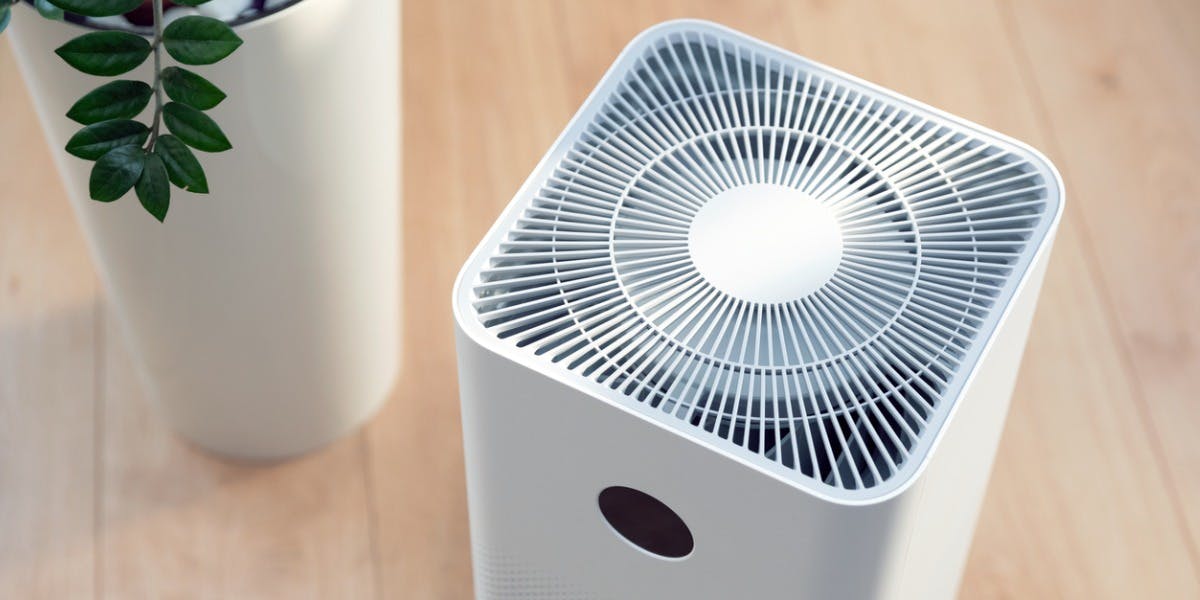Property Management
What Every Property Manager Needs to Know About Indoor Air Quality
Last Updated Jun 30, 2021


Keeping your residents safe is one of the major responsibilities of a landlord. That includes making sure the air they breathe is as clean as possible.
There are very few things that apply to every human being on the planet, that you can make blanket statements about. One of them is that everyone wants to feel safe and secure at home. It’s one step up from basic, physiological functions on Maslow’s hierarchy of needs, and it's one of the reasons why Belong works so hard to ensure the residents on the platform can be confident in – and love - their homes just as much as the owners themselves do.
Most of the things that threaten us in our homes are easily identifiable. If you see a pest, you know you have a pest problem; if there’s water weeping down the wall of the bathroom, you know you have a leaky pipe. Some problems though are impossible to see. Which makes them even more insidious.
Take indoor air pollution. Maybe you can see mold growing in a damp corner somewhere, but unless you call in an expert you can’t know if toxic amounts of it are being dispersed in the air.
And there are other forms of pollution that are entirely invisible, that emanate from sources we have no control over. Radon, for example. A radioactive gas responsible for 21,000 lung cancer deaths a year in America, radon is naturally created by the degeneration of uranium in soil and rocks, radon can penetrate a house through its foundation and potentially inflict lethal damage to its residents.
Landlords and property managers need to be aware of the potential threats posed by these invisible invaders, not only for their own sake — because (depending on the state they live in) they might be liable for damages — but also because it is simply the right thing to do.
There are at least four major indoor air pollutants that landlords should be aware of: mold, radon lead and formaldehyde. All can be quite dangerous. The good news is that there are ways to remediate them.
Disclaimer: We strongly recommend discussing these issues with a lawyer versed in local, state, and federal laws that are relevant to these issues, and that you work with accredited experts should you need to take any steps to mitigate against contaminated air.
MOLD
Typically we think of mold as a bathroom problem, but the truth is that it can occur anywhere in your home: all it takes is a little bit of dampness and oxygen to turn your living room into a petri-dish that can endanger the health of your residents.
There is mold there can be seen, that’s easy to address. But some kinds of mold are invisible. As this reputable source says: “One of the most difficult concepts to grasp about mold contamination is that many times you cannot see it. Sometimes there is no visible growth on the walls or any sign that something is wrong.”
Visible or invisible, mold is actually a symptom of an underlying problem: if there’s so much moisture in your house that means there must be a leaky pipe somewhere in the walls, or a problem with your windows or walls or roof or sills that is letting in moisture from outside.
To remediate a mold problem you have to solve both these problems; you have to eliminate the mold itself, of course – individual states have their own certification process for mold remediators, but we also recommend consulting with the Institute of Inspection Cleaning and Restoration Certificatiom, a non-profit organization for the “inspection, cleaning and restoration industries.” But you also have to fix the underlying issue. So if the moisture giving rise to the mold is from leaky pipes, you need a plumber; if it’s coming through a poorly sealed window, you probably need a glazier.
In most states, there are laws that address those underlying issues: You have to ensure the home itself is weather-tight, as well as provide adequate plumbing, ventilation, and non-porous, non-absorptive fixtures and surfaces in bathrooms and kitchens.
But oftentimes the laws themselves don’t even explicitly mention mold; California’s laws do so, but they’re the exception, rather than the rule.
That’s why we encourage all homeowners to consult with the local housing authority, in order to gain absolute clarity as to what’s required of them. We also encourage homeowners to go above and beyond the base requirements. Because if mold becomes a persistent problem, your home being vacant is probably going to become a persistent problem, too. Besides, it’s hard to love something that smells like mildew and Limberg.
RADON
Even though radon is potentially more hazardous and dangerous than mold, there is little legislation on a national or state level that requires landlords to take any steps to mitigate its presence in the house.
That doesn’t mean that residents have no recourse if they get sick from radon in a home you own; if your home is located in a place known to have a lot of radon problems and fail to test and/or warn tenants, they might have grounds for a lawsuit. Which can be a lengthy and expensive ordeal, even if they don’t win.
Again, we strongly advise that you consult with a lawyer regarding your potential legal exposure, should your tenants get sick from exposure to radon while living in your house.
We recommend purchasing a radon detector, to see if your property has an issue, and also to monitor it, in case an issue develops. They are surprisingly affordable. Should your property have or develop a radon issue, there are ways to eliminate it: the foundation of the house should be checked for cracks through which the radon can pass, and specialized ventilation systems can also be helpful. Given the complexity of the task your first step should be consulting with an expert. Find a professional certified by the National Radon Safety Board, or contact your state’s official radon office. The expert will be able to identify the source of the radon and develop a plan to take care of the problem.
LEAD
The lead paint chips that you don’t want children or dogs eating under any circumstances can slough off particles in the air that are also quite dangerous. If you own a home built after 1978, when the use of lead-based paints was banned in the US, you’re probably safe. If not, hire a house painter to strip the house and repaint it.
In addition to these acute issues, there’s the air pollution caused by general filth. That’s why it’s important to change and clean air conditioner filters and make sure heating and cooling systems are in good repair; along those same lines you should vacuum any air ducts where dust and dirt might be accumulating. There are also new, technologically advanced air cleaners on the market like Molekule; Molekule units not only filter the air and give it a score based on its quality, but they also analyze the particles contained in it, to determine if there’s anything dangerous floating about. Air purifiers that use HEPA filters are also quite effective.
Belong looks out for everyone within the residential network
Belong isn't a property management company, it's a residential network for homeowners and renters. Belong looks out for everyone on the platform — the homeowners, the residents, and the houses themselves. When you work with Belong, you have access to their extensive vendor network of over 10,000 professional contractors. They can take care of some of the underlying issues identified here, like leaky pipes or shoddy windows, or even stripping and repainting your house from top to bottom.
Belong is simplifying the rental experience across the US and helping more homeowners reach their financial goals with the most hassle-free property management service; Belong PRO.
Visit our local pages to learn more:
San Francisco Property Management
Los Angeles Property Management
Jacksonville Property Management

About The Author
Lucas Hanft
Lucas attended Yale University before becoming a journalist and working with brands to tell their story.




